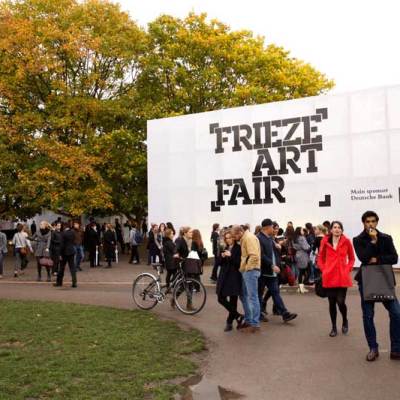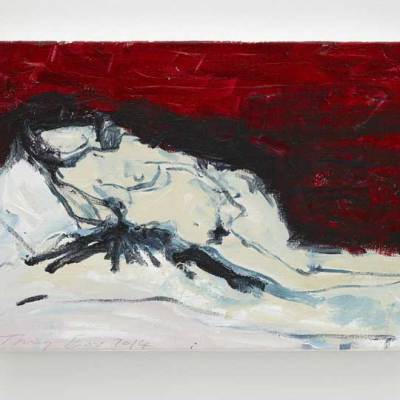A round-up of the week’s reviews
‘Rossetti’s Obsession: Images of Jane Morris’ at the William Morris Gallery (Carey Gibbons)
This small but fascinating exhibition explores Dante Gabriel Rossetti’s preoccupation with Jane Morris, the wife of his friend William Morris. The exhibition not only examines an artist’s obsession with his muse, however; it reveals how Rossetti challenged Victorian conceptions of ideal femininity by formulating an unconventional, ‘aesthetic’ type of beauty.
Anthony Caro’s late, great sculptures at Annely Juda Fine Art (Miranda Stearn)
The long, low format of River Run (2013) takes me all the way back to Caro’s 1960s works such as Early One Morning (1962) and Prairie (1967). There seems a shared concern with demarcating space with colour without entirely enclosing it, although the effect is ultimately different. The ’60s works have that sense of drawing in space, dependent above all on line, resulting in an open-endedness and an expansiveness. River Run, like the other pieces in the exhibition, feels more weighty, more sure of its own limits.
Physician, philanthropist, collector: ‘The Generous Georgian’ in three objects (Katy Barrett)
In the 18th century [Dr Richard] Mead was Thomas Coram, Sir Hans Sloane and Dr John Radcliffe rolled into one, but he left no charity, national museum (Sloane’s collection founded the British Museum) or renowned library and hospital (one of each in Oxford bear Radcliffe’s name) to bear his legacy. He chose to focus his attention and energy on those he encountered in life, leading Samuel Johnson to comment memorably that Mead ‘lived more in the broad sunshine of life than almost any man’.
City Activities with Dancehall (from ‘America Today’; 1930–31), Thomas Hart Benton. The Metropolitan Museum of Art, Gift of AXA Equitable, 2012

Reviving the Regionalists: Thomas Hart Benton at the Metropolitan Museum (Louise Nicholson)
‘I don’t know whether it’s art or not, and I don’t care’, wrote Thomas Hart Benton in 1931 of his just-completed mural series ‘America Today’. They filled the boardroom walls of the daringly progressive New School for Social Research in downtown Manhattan, founded in 1919 to address ‘the intellectual timidity of traditional colleges’. ‘What I wanted was to show the energy and rush and confusion of American life.’






